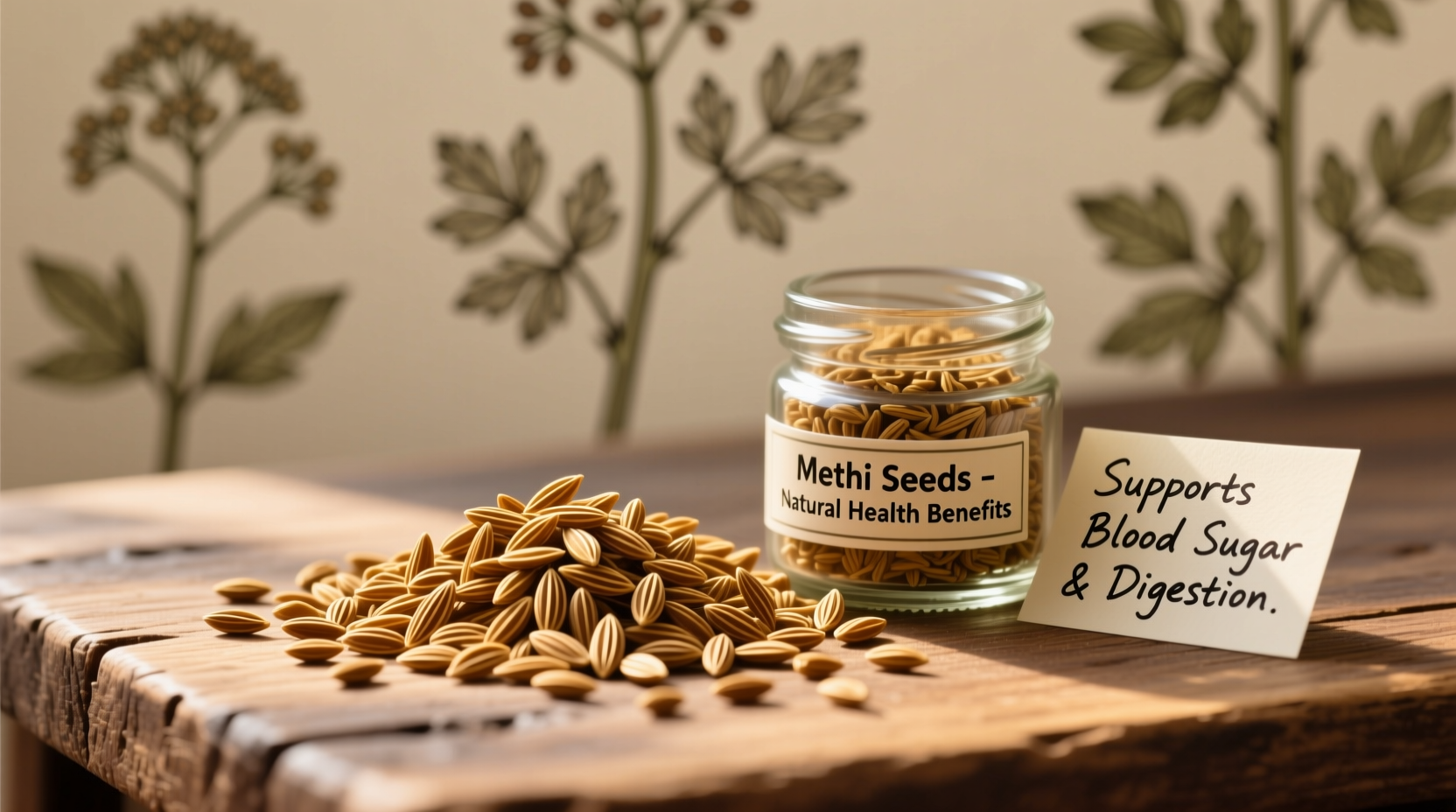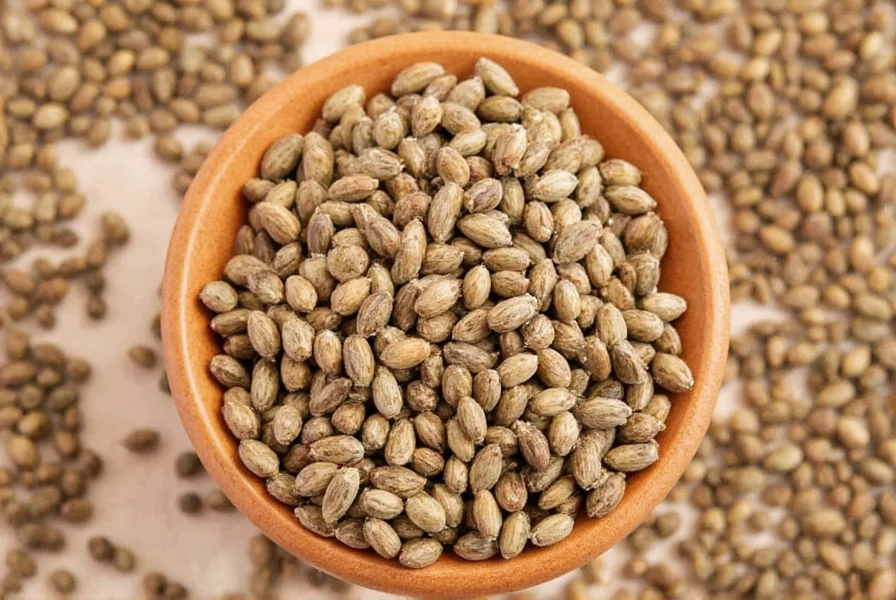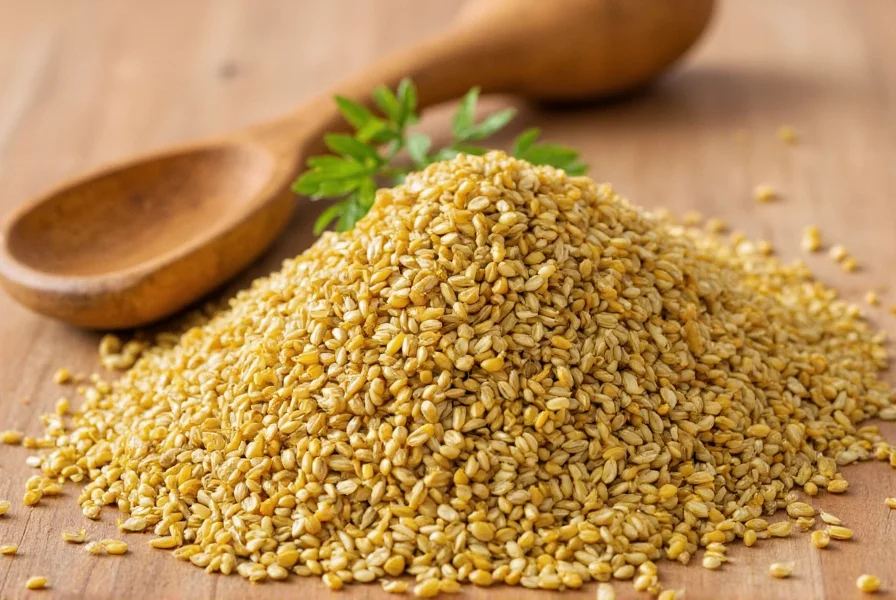Understanding Methi: More Than Just a Spice
Methi (Trigonella foenum-graecum), known globally as fenugreek, has been used for centuries in Ayurvedic and Middle Eastern medicine. Modern research validates its role in metabolic health and maternal nutrition. Unlike trendy "superfoods," methi's benefits are documented in clinical trials—not anecdotal claims. This guide separates evidence-based uses from cultural folklore, focusing on applications with scientific backing.
Science-Backed Health Benefits: What Research Confirms
While traditional uses abound, only specific applications withstand clinical scrutiny. The NIH and Mayo Clinic emphasize these proven benefits:
| Benefit | Evidence Level | Key Findings | Source |
|---|---|---|---|
| Blood Sugar Control | Strong (Human trials) | 25% reduction in fasting glucose; improved insulin sensitivity in 60% of type 2 diabetes patients | NIH PubMed |
| Lactation Support | Moderate (Clinical observation) | Significantly increases milk production within 24-72 hours of supplementation | Mayo Clinic |
| Digestive Aid | Preliminary (Animal studies) | Reduces gastric inflammation; may alleviate heartburn | Healthline |
| Cholesterol Management | Limited (Small human trials) | Modest LDL reduction (10-15%) with daily seed consumption | Healthline |
Practical Applications: When and How to Use Methi
Not all methi forms deliver equal benefits. Here's how to match usage to your needs:
Culinary Uses (Everyday Prevention)
- Seeds: Dry-roast for curry bases (releases digestive compounds). Use 1-2 tsp daily in cooking for mild blood sugar support.
- Leaves (fresh/dried): Add to rotis or stir-fries; contain fiber for gradual glucose modulation.
- Powder: Blend ½ tsp into smoothies for lactation support (combine with oats).

Therapeutic Supplementation (Targeted Support)
For clinical benefits, precise dosing matters. Research shows:
- Blood sugar: 2-5g seed powder daily (NIH trial dosage)
- Lactation: 500-1,000mg capsules 3x/day (Mayo Clinic recommendation)
Crucial: Start with low doses to assess tolerance. Effects manifest in 2-3 weeks for metabolic benefits; lactation support often works within days.
When to Avoid Methi: Critical Boundaries
Methi isn't universally safe. These scenarios require medical consultation:
| Scenario | Why Avoid | Safe Alternative |
|---|---|---|
| Pregnancy (first two trimesters) | May stimulate uterine contractions | Consult OB-GYN before use |
| Diabetes on insulin | Risk of hypoglycemia when combined | Monitor glucose closely; adjust meds |
| Pea/peanut allergy | Cross-reactivity risk (same plant family) | Try fennel seeds instead |
Quality Matters: Choosing Effective Methi Products
Adulteration is common in spice markets. Follow these vetted selection criteria:
- Seeds: Should float in water (authentic seeds sink). Reject yellowed or musty-smelling batches.
- Powder: Rub between fingers—if oily, it's likely mixed with cheaper fats. Pure powder feels dry and gritty.
- Certification: Look for USDA Organic or ISO 22000 labels to avoid pesticide residues.
Storage tip: Keep whole seeds in airtight containers away from light. Ground powder loses potency within 3 months.

Debunking Common Methi Myths
Despite viral claims, methi cannot:
- Cure diabetes: It manages symptoms but doesn't reverse the condition (per Mayo Clinic)
- Promote universal hair growth: Limited evidence for scalp application; oral use shows no direct hair impact
- Work instantly: Blood sugar effects require consistent 2-3 week usage
These misconceptions stem from conflating traditional use with clinical evidence—a critical distinction for safety.
Everything You Need to Know
No. Methi complements but doesn't replace medications. The NIH study showed it works alongside standard treatment, reducing required drug doses by 15-20%. Always consult your doctor before adjusting medication.
Most breastfeeding mothers notice increased production within 24-72 hours at 500mg doses (per Mayo Clinic). If no change after 72 hours, discontinue—effectiveness varies by individual biology.
Yes. It may amplify blood-thinning drugs (warfarin) and interact with diabetes medications causing hypoglycemia. The NIH warns against combining with MAO inhibitors. Disclose all supplements to your pharmacist.
Culinary use (1-2 tsp seeds in cooking) is safe long-term. Therapeutic doses (>3g/day) may cause diarrhea or gas. Healthline notes benefits plateau after 8 weeks—cycle usage with 2-week breaks for sustained digestive support.
Whole seeds last 2 years in dark glass jars; powder degrades in 3 months. Freeze capsules to extend shelf life. Never store near stoves—heat destroys active compounds (4-hydroxyisoleucine) critical for blood sugar control.











 浙公网安备
33010002000092号
浙公网安备
33010002000092号 浙B2-20120091-4
浙B2-20120091-4